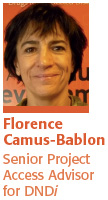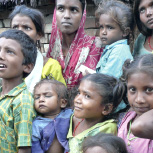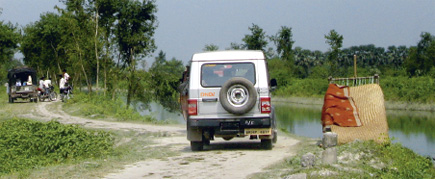 |
|
|
|
|


DNDi aims to improve the quality of life and the health of people suffering from Neglected Tropical Diseases (NTD) and to ensure equitable access to new and field-relevant health tools. So what exactly is meant by “access”? What are the barriers to access for VL patients, and what strategies has DNDi put in place to deal with the access issues?
Firstly, access refers to a broad range of activities that ensure that the treatments developed are translated into interventions with public health benefits. The three ‘pillars’ of access are related to supply, demand and sustainability. For instance, a new treatment can only lead to health benefit if it is consistently produced, distributed at an affordable price, and reaches health care providers who are aware of this new treatment and are willing to use it. In addition, relevant policies, treatment guidelines, and funding are some of the critical elements needed to support the sustainable use of the new treatment.
Secondly, major barriers impede access to treatment for visceral leishmaniasis. Several drugs and active pharmaceutical ingredients are expensive, in limited supply, or produced by a single manufacturer, hence without a fallback option in the case of the supplier defaulting. Consistent and good quality of treatments may be a problem in some areas, especially for rural and illiterate patients who barely have access to any health facility. Moreover, it is difficult to detect cases and diagnose the disease; the drug registration process is complex in some countries; and procurement and supply systems, in some areas, are fragmented and complex.
 People are denied access to drugs by a variety of factors, including a lack of funding and a lack of healthcare infrastructure. |
Last but not least, communication and advocacy for increased awareness and funding complement access activities to support the national control programmes and the implementation of the new treatments.

DNDi synergises efforts to increase access to essential medicines for the world's poorest countries.